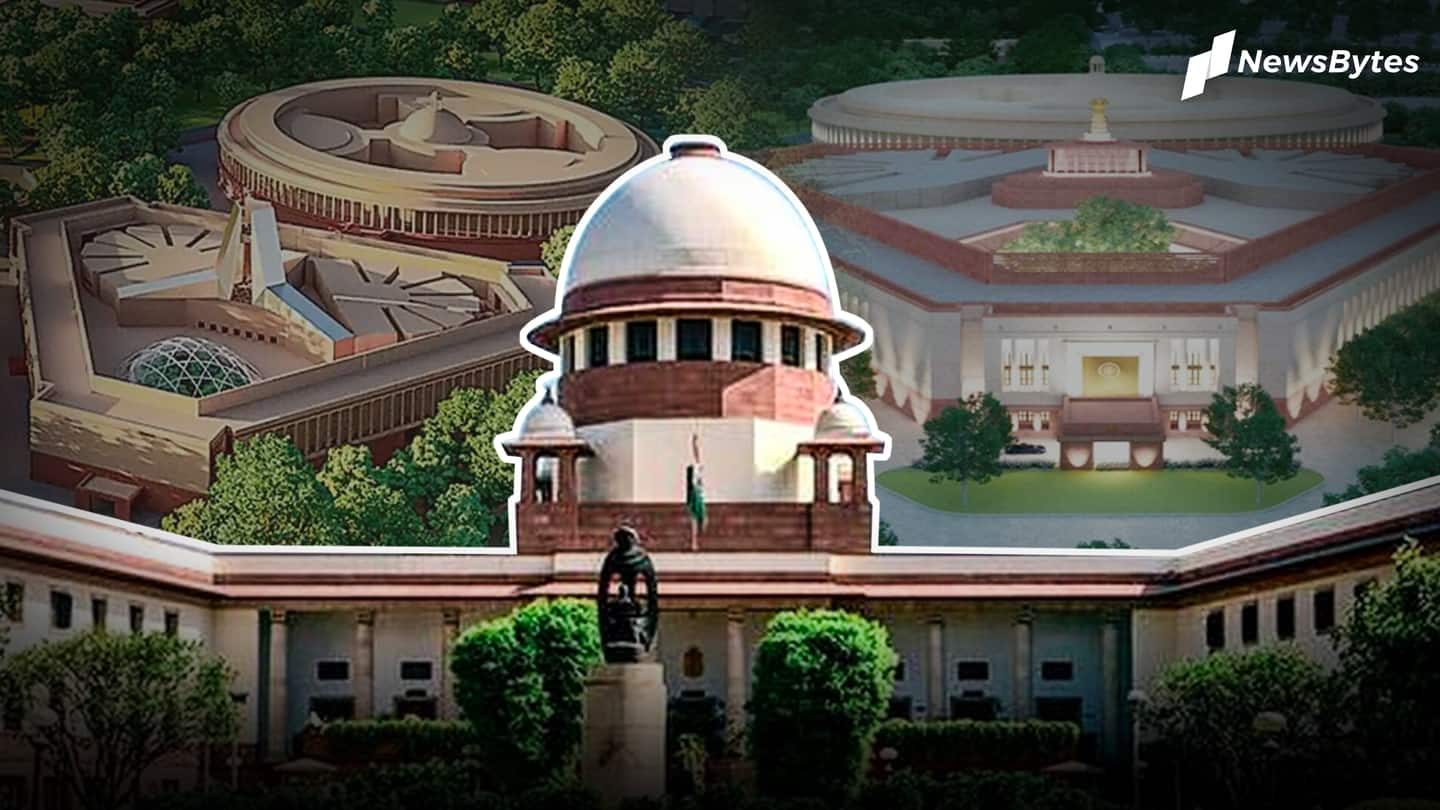
Centre's ambitious Central Vista Project gets Supreme Court nod
What's the story
The Supreme Court on Tuesday gave the green signal to the Central Vista Project, one of the most ambitious projects of Prime Minister Narendra Modi's regime, which seeks to refurbish government buildings in central Delhi and construct a new Parliament complex.
A batch of petitions was filed claiming that the project violated land use regulations as well as environmental norms.
Here's what happened.
Background
Context: Alleging violation of rules, petitioners went to court
While the government pushed the project saying redevelopment was the need of the hour, objections were raised from some quarters.
A petitioner, Rajeev Suri, challenged the notification issued by Delhi Development Authority (DDA) on December 21, 2019, which pertained to land use changes.
Another petitioner, Meena Gupta, a former Secretary of the Ministry of Environment and Forests, argued the project will be detrimental to the environment.
Looking back
Court reserved verdict in November but allowed ground-breaking ceremony
In November, the bench of Justices AM Khanwilkar, Dinesh Maheshwari, and Sanjiv Khanna reserved the verdict.
However, last month, SC allowed the ground-breaking ceremony of the new Parliament building, while adding that construction can't begin until a verdict is delivered.
The ceremony was attended by PM Modi who said the new building will be witness to a self-reliant India.
Defense
In court, Centre took the same tone, explained building's need
Naturally, the Centre defended the project fiercely in court. Solicitor General Tushar Mehta drew attention to the security issues and structural weaknesses of the existing building.
The Centre also said the new project will save nearly Rs. 1,000 crore that is paid as rent for a number of offices.
To note, the Centre plans to conserve the existing Parliament building as an archaeological asset.
Details
With 2:1 verdict, SC ruled in government's favor
Today, while giving the approval to the project, the bench underlined that the exercise of power under the Delhi Development Authority (DDA) Act was valid.
The apex court also agreed with clearances given by the Ministry of Environment.
"The selection and appointment of an environmental consultant in the case are held to be just and proper. Modifications regarding the change in land use stand confirmed," Justice Khanwilkar said.
Order
Meanwhile, Justice Khanna disagreed with other two judges
However, Justice Khanna disagreed with his colleagues as far as land use changes were concerned.
"On the question of grant of change of land use, I have a different opinion. I have held that the same was bad in law. There was no prior approval of Heritage Conservation Committee and thus matter is remitted back for a public hearing," he wrote.